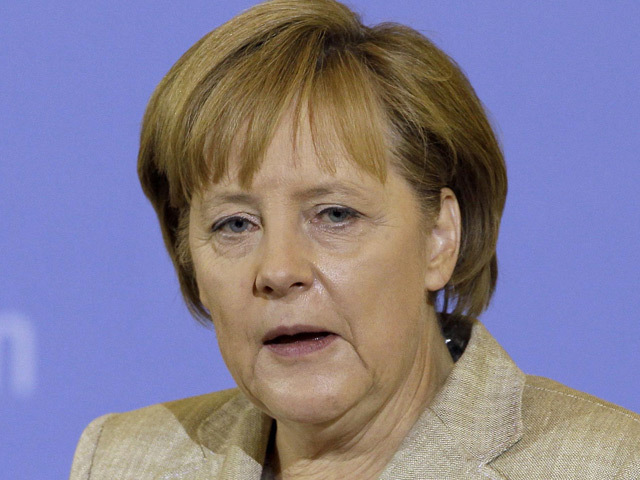
German Chancellor Angela Merkel – a veteran of global efforts to curb climate change – has refused to set a deadline for ending her country’s use of coal.
Green groups and developing countries had called on Mrs Merkel to use global climate talks in Bonn, to set a date for her country to phase out coal-fired power plants – as she has previously done with nuclear energy.
Mrs Merkel, who is sometimes referred to as the “climate chancellor” for her long-standing efforts to combat global warming, acknowledged Germany’s practice of burning coal to generate electricity is one reason it is not on track to cut its carbon emissions by 40% from 1990 levels by 2020.
“Now, at the end of 2017, we know that we’re still missing a big chunk,” Mrs Merkel said.
Speaking to leaders and ministers from around the world, she said there will be “hard discussions” on the issue in her upcoming talks with the Green party and the pro-business Free Democrats on forming a new government.
Germany generates about 40% of its electricity from coal, including the light brown variety called lignite that is considered to be among the most heavily-polluting fossil fuels.
“Coal, especially lignite, must contribute a significant part to achieving these goals,” Mrs Merkel said. “But what exactly that will be is something we will discuss very precisely in the coming days.”
Speaking immediately after her, French President Emmanuel Macron said his country was committed to ending the use of coal by 2021.
The task is made a lot easier for France by the fact the country hardly has any coal-fired plants and still gets most of its electricity from nuclear power.
Several other countries, including Britain, Canada and Italy, have also announced they will stop using coal in the coming years.
Mr Macron, who has styled himself as a climate champion since being elected earlier this year, said Europe should fill the gap in funding for the UN’s scientific expert panel on climate change left by the US decision to hold back its contribution.
The administration of US President Donald Trump has said it will cut funding for the panel known as the Intergovernmental Panel on Climate Change, which provides key guidance on global warming to governments around the world.
The talks in Bonn have largely centred on hammering out the precise rules for implementing the Paris climate accord.
The 2015 agreement was seen as a political landmark because countries set a firm target for countries to try to keep global warming below 2C (3.6F).
Experts say achieving that goal has been made harder by Mr Trump’s rejection of the Paris accord and threat to withdraw in 2020 unless it is renegotiated.
Mrs Merkel commended an alliance of US states, cities and businesses calling itself “America’s Pledge” that has committed to keep working on reducing emissions even without Washington’s support.
She also sought to assure poor countries that a 100 billion US dollar (£75 billion) fund intended to help them respond to climate change will be filled despite Mr Trump’s threat to withhold US federal contributions.
Still, her refusal to commit on coal drew criticism from campaigners in Bonn.
“Angela Merkel has missed her chance to show her leadership qualities on climate change,” said Mohamed Adow of the charity Christian Aid.
“A UN climate summit on home soil was the perfect place to bury coal and set the date that Germany would phase out the dirtiest fossil fuel.”
Recommended for you
